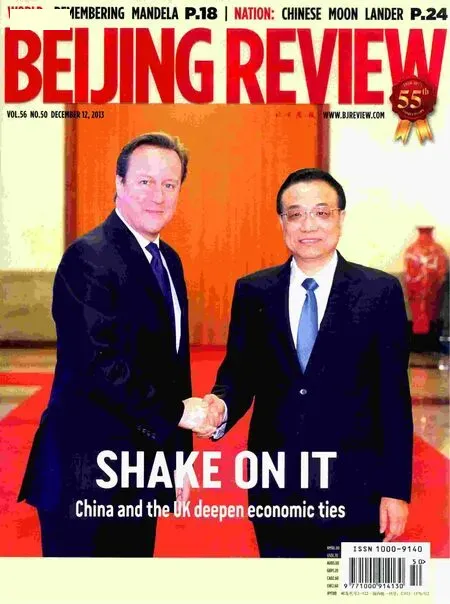Village Management
Caijing Magazine December 2
Thirty-five years ago in 1978, the Third Plenary Session of the 11th Central Committee of the Communist Party of China (CPC) launched rural reform. Through separating the ownership of land and rights of use, while implementing household responsibility systems, reformers activated enthusiasm among hundreds of millions of farmers across the country. Accordingly, Chinas rural areas have embraced a long period of prosperity.
In the past three decades, affected by rapid urbanization and industrialization, big changes have struck the rural economy.
Currently, many villagers profit by renting out their fields, a business which has surged with rising land prices. Faced with big earnings, conflicts between villagers, new and old, have become fierce. In the meantime, current management structures make it easy for rural politics to be kidnapped by the economy. This not only weakens selfgovernance and social services, but adds to conflict.
The recently concluded Third Plenary Session of the 18th CPC Central Committee has set a goal to push forward modernization of the countrys governance system and abilities, with village management a key focus.
Such management not only concerns stability in rural areas, but also relates to further local economic development.
Tobacco Production Doubled
Global Times December 5
Cigarette production in China has almost doubled since the nation signed a landmark international agreement to cut down on tobacco output, meaning that the nation is only paying lip service to tobacco control legislation, according to a new report.
The report, Tobacco Control in China From a Civil Society Perspective 2013, compiled and released by the Beijing-based Thinktank Research Center for Health Development, found that around 2.175 trillion cigarettes were produced in the year leading up to October.
In 2002, before China signed the World Health Organization Framework Convention on Tobacco Control in 2003, cigarette production was 1.75 trillion, but it rose to 2.58 trillion a year by 2012.
The tobacco industry in China is a large contributor to fiscal revenue. In 2012, it paid a total of 864.9 billion yuan ($141.9 billion) in taxes and handed 716.7 billion yuan ($116 billion) to the State treasury.
Suo Chao, a spokesperson of the Chinese Association of Tobacco Control, said China has made efforts to enforce anti-smoking regulations. “Several provinces have expanded their bans in more public places and multiple hospitals have set up smoking cessation clinics to help smokers,” Suo noted.
Huawei Putting U.S. on Hold
China Daily December 5
Huawei Technologies Co. Ltd., Chinas largest maker of telecommunications networking equipment, is indicating that it will abandon the United States carrier equipment market.
“Huawei is prioritizing its carrier business in markets that are open to competition, innovation and investment,” said Huawei spokesman William Plummer. “We remain committed to our customers, employees, investments and operations, and our more than $1 billion in sales in the United States. We stand ready to deliver additional competition and innovative solutions as desired by customers and allowed by authorities.”
Plummers statement came after Huawei CEO Ren Zhengfei told French media the com- pany is pulling out of the United States, as it feels uncomfortable being stuck in the middle of a China-U.S. trade skirmish.
The company is heavily invested in the United Kingdom and some Eastern European nations. It started to explore overseas markets about a decade ago. The company has a global research and development staff totaling 70,000.
With China issuing 4G licenses to Chinese carriers, Huawei, a major infrastructure vendor, is set to clinch contracts nationwide. It is also eyeing the consumer electronics market.
Family Planning Policy Reform
Caixin November25
The Chinese Government further relaxed its birth control policy by allowing families to have two children if one of the parents is an only child at the recently concluded Third Plenary Session of the 18th CPC Central Committee. Of all the decisions made at the meeting, this is the one most welcomed by ordinary Chinese citizens.
It has long been agreed that if the Chinese Government doesnt change the birth control policy, China will quickly become an aging society. A few years from now, the country will no longer have sufficient labor—which is bad news for its development.
Thus, according to many scholars, China not only needs to relax its birth control policy, but also needs to completely relax population control and even encourage the young generation to have babies.
According to a random survey, after the decision was released, only two of 10 couples meeting the requirements really want to have a second child. Most of them said they were happy to have the right, but they wouldnt do it. The main reason is the increasingly high cost of bringing up a child and the young parents aspiration for career success.
Even as a small step, it sends a strong signal of the Chinese Governments change in population strategy. Hopefully, bigger steps are to come.

